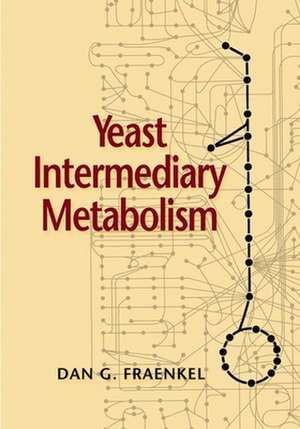Yeast Intermediary Metabolism
Autor Dan G. Fraenkelen Limba Engleză Hardback – 30 apr 2011
Preț: 569.17 lei
Preț vechi: 618.67 lei
-8% Nou
Puncte Express: 854
Preț estimativ în valută:
108.93€ • 113.30$ • 89.92£
108.93€ • 113.30$ • 89.92£
Carte indisponibilă temporar
Doresc să fiu notificat când acest titlu va fi disponibil:
Se trimite...
Preluare comenzi: 021 569.72.76
Specificații
ISBN-13: 9780879697976
ISBN-10: 0879697970
Pagini: 434
Dimensiuni: 183 x 259 x 25 mm
Greutate: 1 kg
Editura: Cold Spring Harbor Laboratory Press
ISBN-10: 0879697970
Pagini: 434
Dimensiuni: 183 x 259 x 25 mm
Greutate: 1 kg
Editura: Cold Spring Harbor Laboratory Press
Descriere
In recent years, the eukaryotic microbe baker's yeast, Saccharomyces cerevisiae, has been used in many studies of cell biology common to multicellular organisms. This single-volume handbook explains metabolism as based on Saccharomyces.
